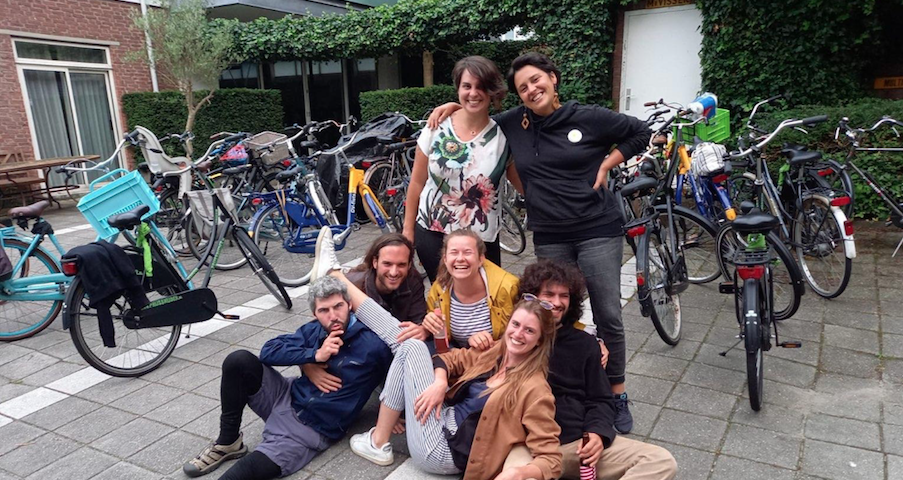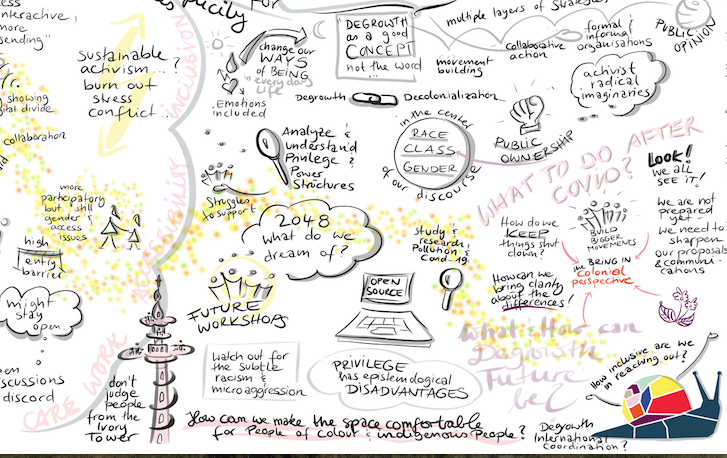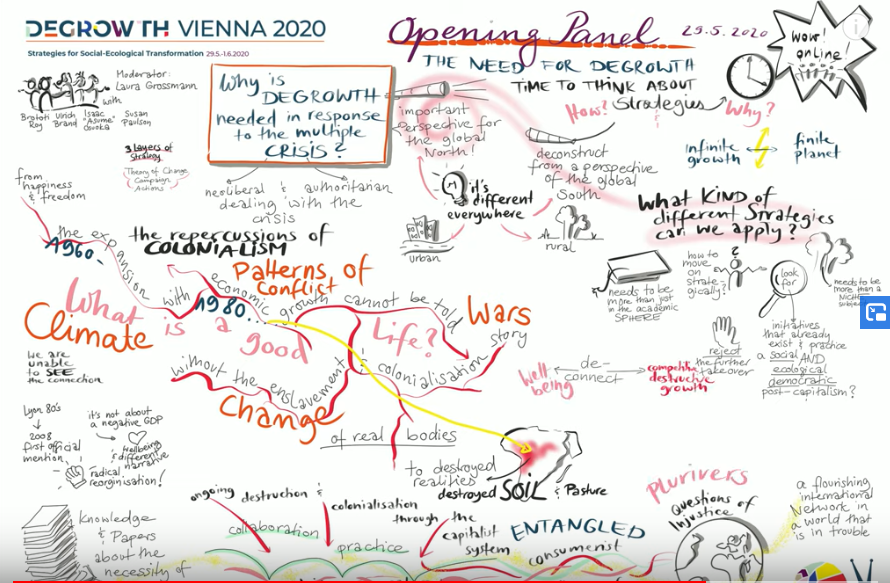In this announcement, the Global Degrowth Day organising team talk through the selection of care as the theme for the 2021 edition of the event.
In our search for a theme for next year’s Global Degrowth Day, taking place on June 5th 2021, we launched a call for ideas back in October, and a poll in November. These were the results:
 The results reflect the multiple angles and aspirations of degrowth, and resonate with ongoing struggles. The most popularly selected themes reflect degrowth’s ambitions for social and climate justice, for acknowledging the key importance of care, for abolishing structures of oppression as the patriarchy, colonialism, the military and prison industrial complexes, and for embracing the multiple possible alternatives (pluriverse). They also embody degrowth’s desire to re-assess values, income and technologies, enhance subsistence and food sovereignty, and build commons predicated upon conviviality and solidarity, in the Global North and the Global South.
While “Degrowth in Practice” received the most votes in the survey, we realized that putting degrowth into practice has always been the main idea behind the Global Degrowth Day. So while we are glad to see a lot of interest in that, our aim was to find an additional flavour for the action day.
Accordingly, we would like to propose the theme of “Care” for next year’s Global Degrowth Day.
So on Global Degrowth Day 2021, besides sharing practical alternatives to a growth-based society, we also encourage you to choose an activity to illustrate degrowth and care (e.g. caring in our local community, caring for all beings, caring for the planet, caring for loved ones...).
Early next year, we will provide further input on this topic, focusing on how to incorporate it into the Global Degrowth Day. So stay tuned and see you in 2021!
The Global Degrowth Day Team
The results reflect the multiple angles and aspirations of degrowth, and resonate with ongoing struggles. The most popularly selected themes reflect degrowth’s ambitions for social and climate justice, for acknowledging the key importance of care, for abolishing structures of oppression as the patriarchy, colonialism, the military and prison industrial complexes, and for embracing the multiple possible alternatives (pluriverse). They also embody degrowth’s desire to re-assess values, income and technologies, enhance subsistence and food sovereignty, and build commons predicated upon conviviality and solidarity, in the Global North and the Global South.
While “Degrowth in Practice” received the most votes in the survey, we realized that putting degrowth into practice has always been the main idea behind the Global Degrowth Day. So while we are glad to see a lot of interest in that, our aim was to find an additional flavour for the action day.
Accordingly, we would like to propose the theme of “Care” for next year’s Global Degrowth Day.
So on Global Degrowth Day 2021, besides sharing practical alternatives to a growth-based society, we also encourage you to choose an activity to illustrate degrowth and care (e.g. caring in our local community, caring for all beings, caring for the planet, caring for loved ones...).
Early next year, we will provide further input on this topic, focusing on how to incorporate it into the Global Degrowth Day. So stay tuned and see you in 2021!
The Global Degrowth Day Team

In 2024, Degrowth.info celebrates its 10th anniversary. We give you some insights into our collective: from our horizontal structure and our involvement in the degrowth movement to our team's political friendship and laughter.

This is part two of a piece reflecting on the Vienna degrowth conference and considering how to move forward based on the inputs and insights from the conference. You can read part one (focused on the conference) here. The idea of organizing the Degrowth Vienna 2020 conference was at least in part connected to a piece that some conference organizers published in this blog in which they crit...

The conference “Degrowth Vienna 2020: Strategies for Socio-ecological transformation” took place online between May and June 2020, in the midst of a pandemic crisis. This two-part piece will firstly reflect upon the conference (part I) and then propose ways to move forward (part II). As a member of the Advisory Board, I was partly involved in the discussions regarding the planning of the...